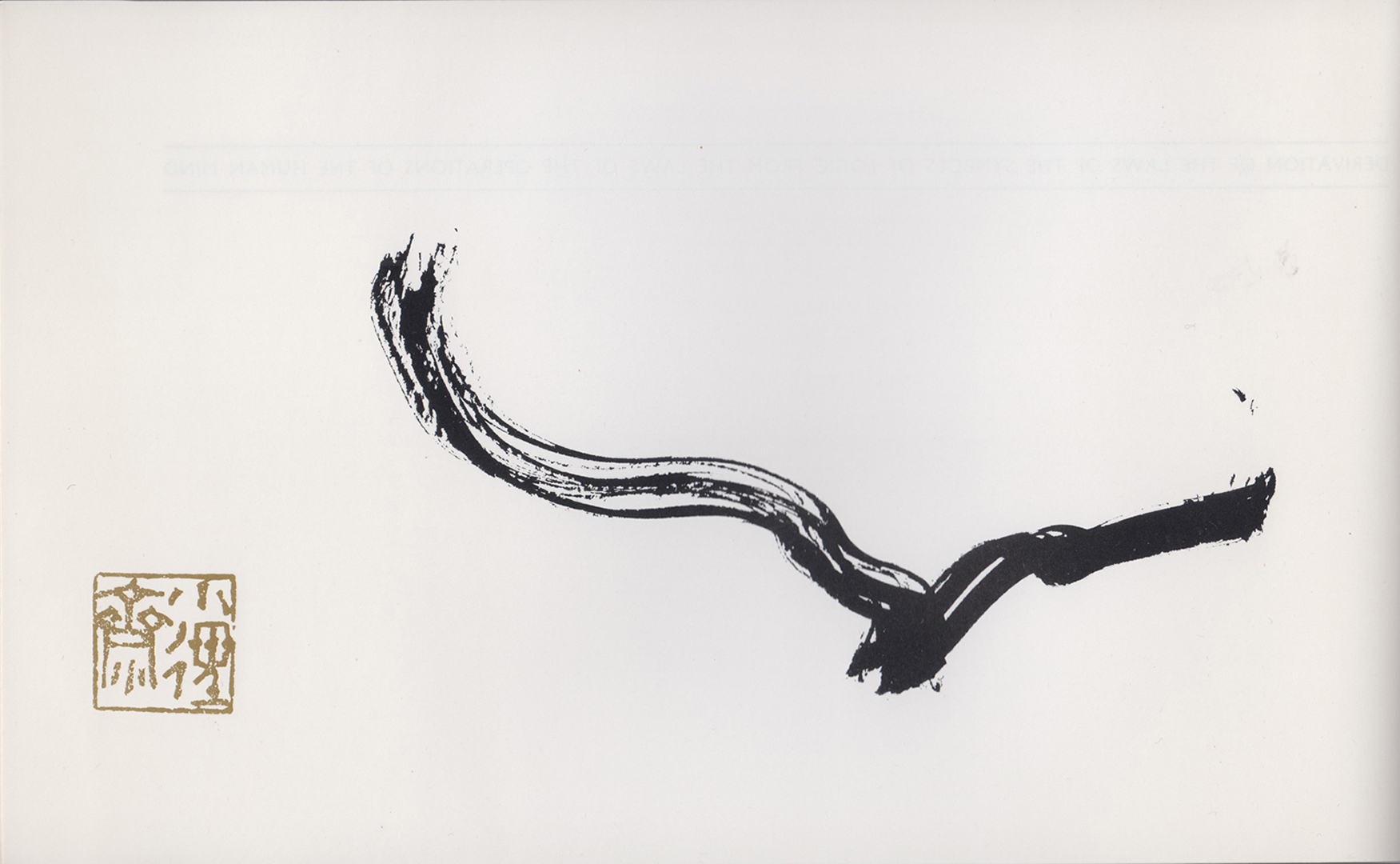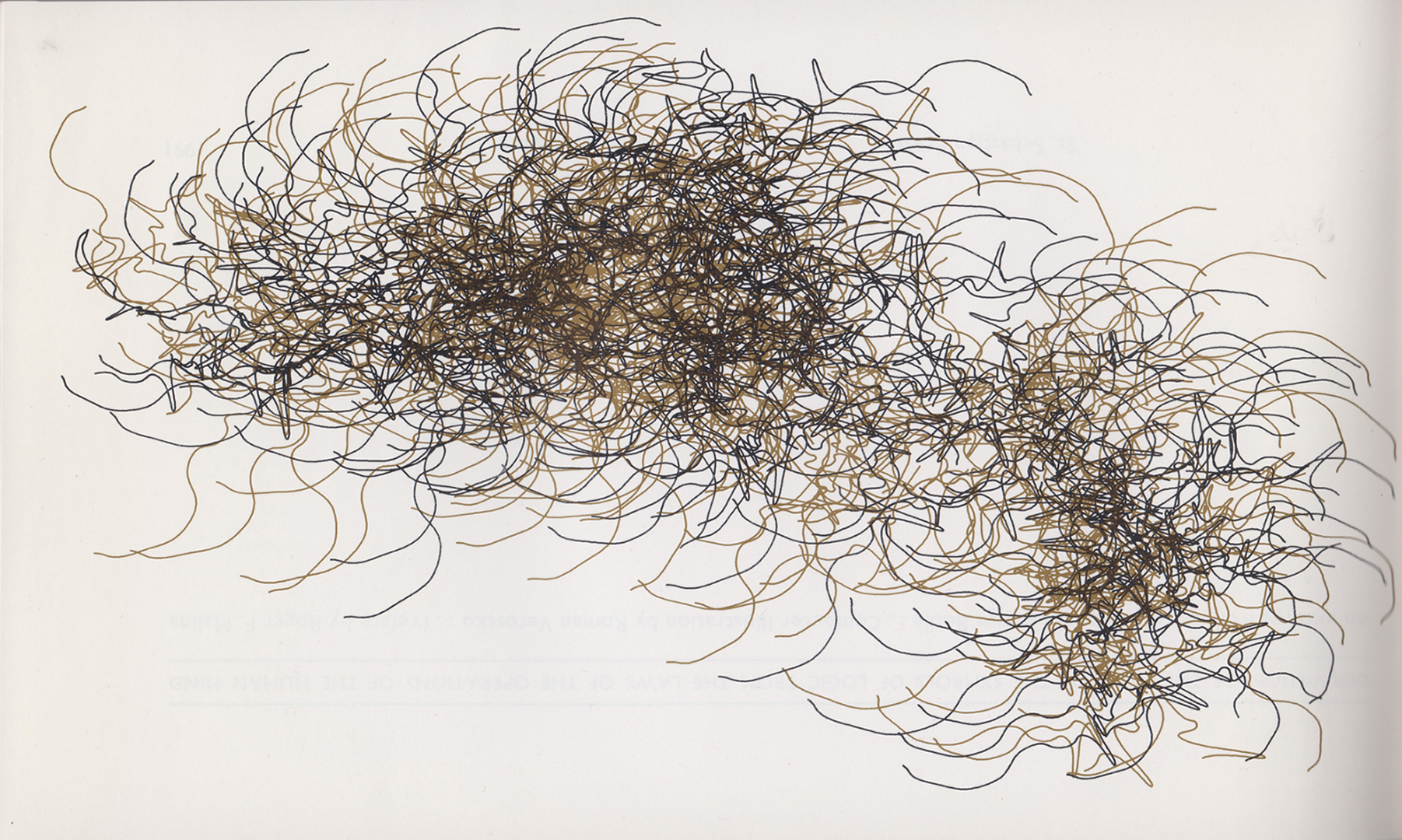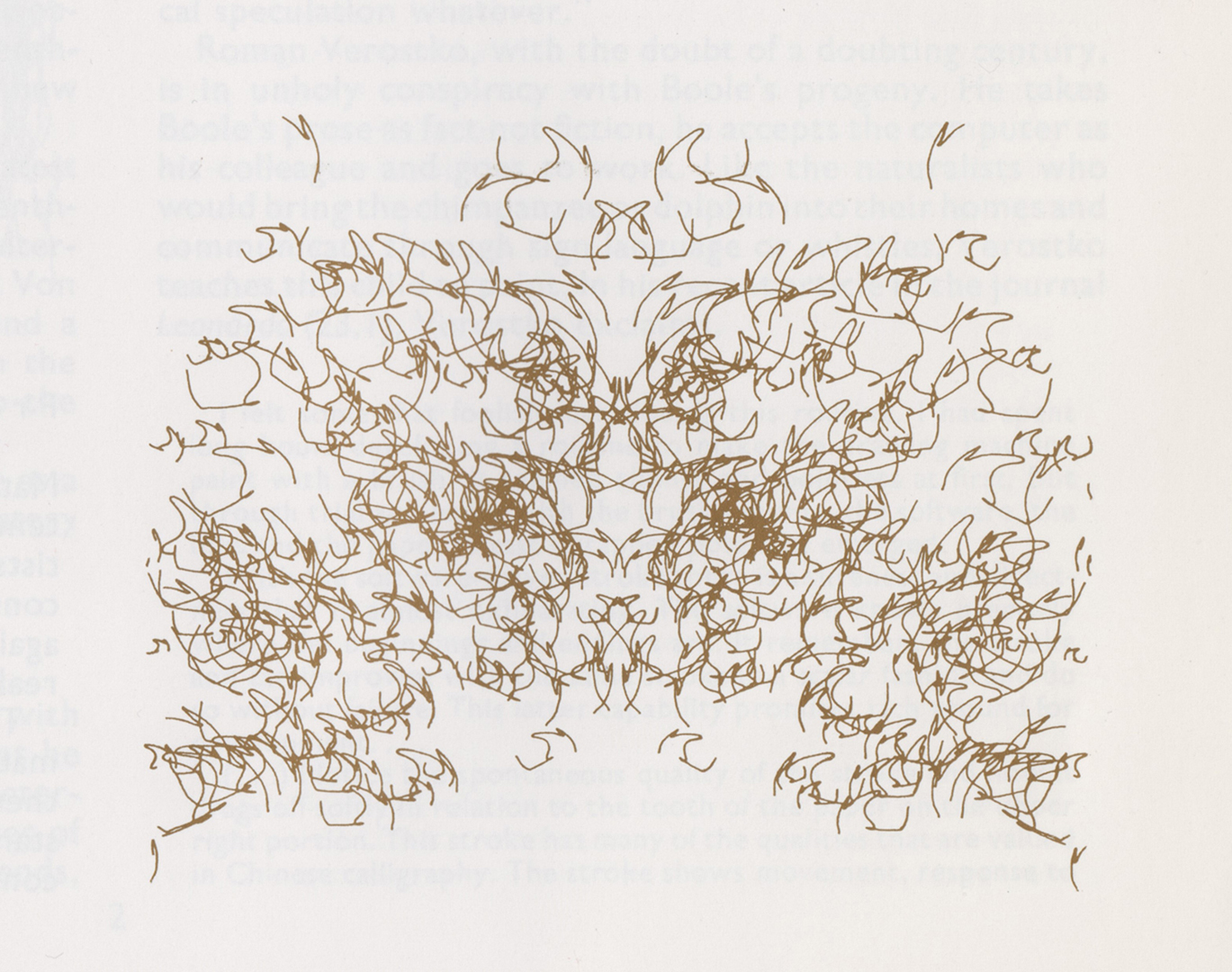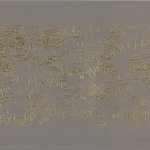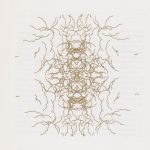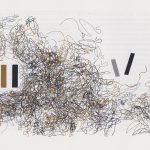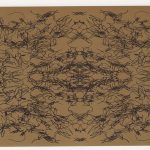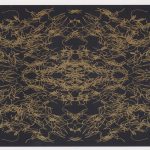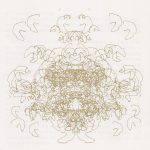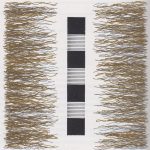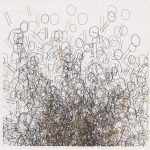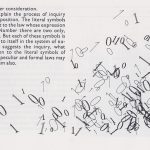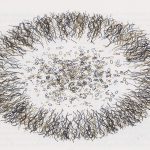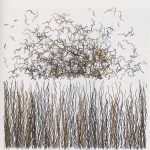“Derivation of the Laws” by Roman Verostko
Title:
Artist(s) and People Involved:
Exhibiting Artist(s):
Symposium:
Artist Statement:
There are many remarkable analogies between computing processes and biological processes (e.g. software generations, computer viruses). We can expect these analogies to become more transparent as computers evolve further. We assume that the ‘rulebook’ in our universe is the same for every information processing system whether it be the mind of a human or a chimpanzee, an abacus or a Disc Operating System (DOS). This ‘rulebook’ fascinated George Boole. He was convinced that if the laws of logic “are really deduced from observation, they have a real existence as laws of the human mind independently of any metaphysical theory”. He sought to identify those rules of thought and give them algebraic expression. In Proposition IV he identified the fundamental law of thought” as Aristotle’s principle of contra-diction — that It is imposssible for any being to possess a quality and at the same time not to possess it”. George Boole argues from its algebraic equivalent that “what has been com-monly regarded as the fundamental axiom of metaphysics is but the consequence of a law of thought, mathematical in its form.” If George Boole were living today he would stand in wonder and amazement pondering the magnificent machine language that has evolved since the publication of the Laws in 1854. I think especially that he would be transported to near ecstasy seeing the binary 1’s and 0’s in computer assembly language which symbolise the ‘on’ and ‘off’ bits. This is his Proposition IV evolved into a machine language that controls the electric circuits in everything in our daily world, from cash registers, airplanes, and washing machines to Cray Sumpercomputers. My illustrations have evolved from procedures made possible by Boolean logic. For several illustrations I adjusted my algorithms to use terms from Boole’s symbolic logic for the graphic improvisation. In those cases the 1’s and 0’s were distributed randomly around the centre of attraction. The visual effects are intended to suggest the dynamism inherent in logical systems. It is a tribute to Boole who perceived the value of a symbolic language of logical equivalence in advance of computer graphics.
Work in exhibition: Derivation of the Laws 5 copies of the limited letterpress edition of George Boole’s Derivation of the Laws with code generated illustrations by Roman Verostko (St Sebastian Press, Minneapolis, Minnesota, USA, 1991)
125 copies, handpulled, 4 colours, type set in Gill Sans; 100 regular bindings, 20 deluxe binding, 5 artistes livers.
Works related to the books: Frontispieces sheet, 92.5 x 100cm Endpieces sheet, 100 x 60crn Gaia series, AM2, 100 x 60cm Gala series, AQ2, 100 x 60cm
Additional Images:
- Verostko: Derivation of the Laws
- Verostko: Derivation of the Laws
- Verostko: Derivation of the Laws
- Verostko: Derivation of the Laws
- Verostko: Derivation of the Laws
- Verostko: Derivation of the Laws
- Verostko: Derivation of the Laws
- Verostko: Derivation of the Laws
- Verostko: Derivation of the Laws
- Verostko: Derivation of the Laws
- Verostko: Derivation of the Laws
- Verostko: Derivation of the Laws

